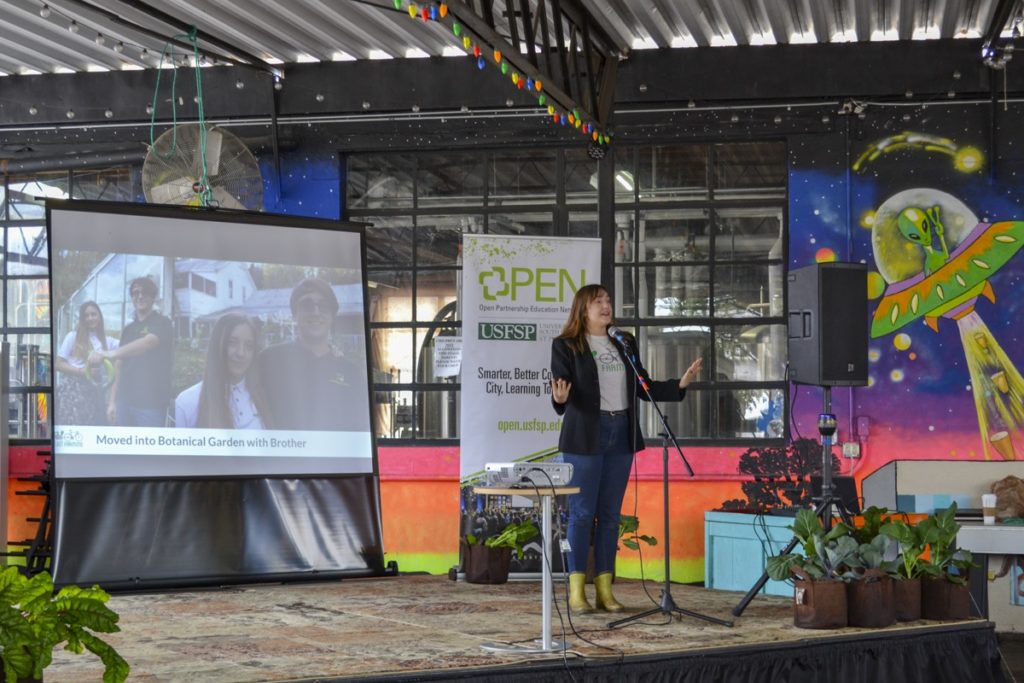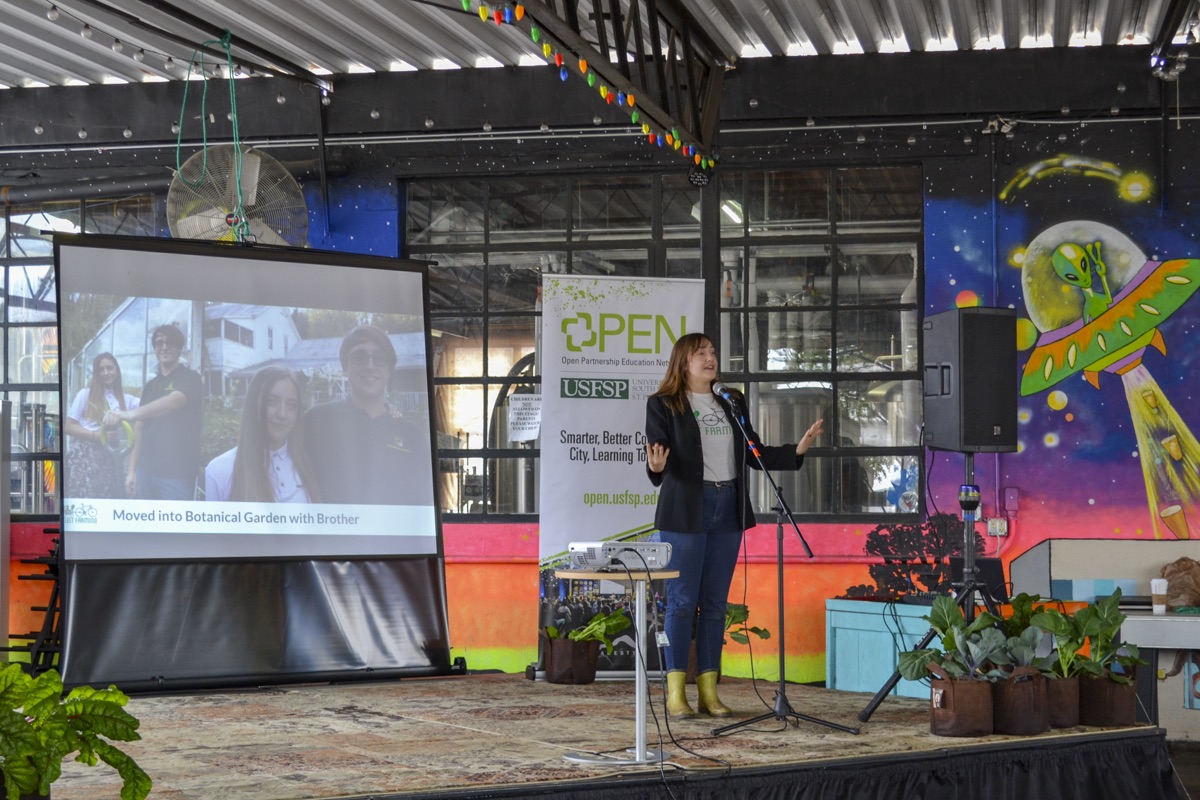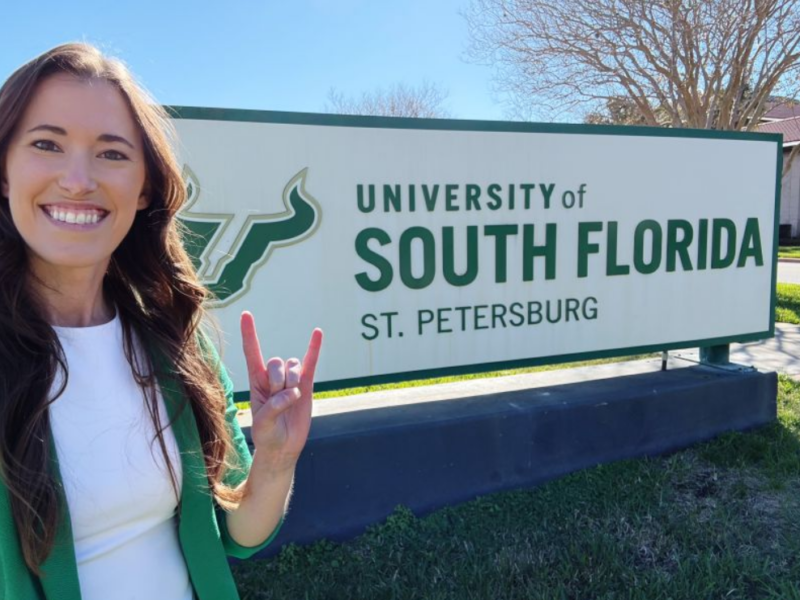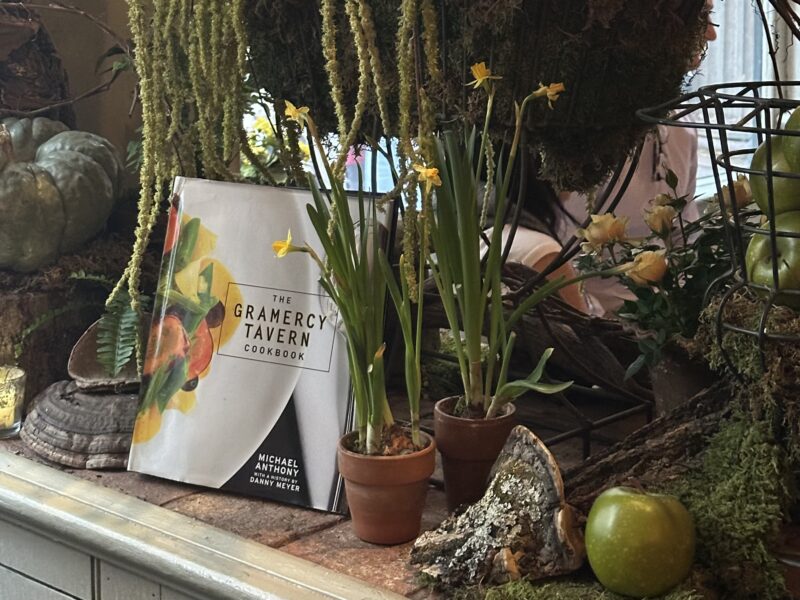
By Amy Diaz
When Jenny Fessler asked the crowd of over 100 gathered in the patio of Cage Brewing on Jan. 26 if they were there because they liked beer, all adult hands went up.
But beer was only part of the occasion.
Fessler is the Associate Director of the Open Partnership Education Network (OPEN), a program based out of USF St. Petersburg that facilitates community learning and conversation.
The program invites experts to speak on issues related to different themes such as “Civility,” “Live Well” and “Radical Schools.” Its latest theme, “Seeds,” focuses on sustainability and local food systems.
OPEN partnered with the Sustainable Urban Agriculture Coalition (SUAC), of which Fessler is also vice president, and USF St. Petersburg’s Brewing Arts Program, to host the “We Dig St. Pete” Beer and Garden Tour.
With a $10 adult ticket, attendees toured five local gardens: 15th Street Agri-Hood/Eco-Village, Old Northeast Community Garden, Greens ‘n’ Things Urban Farm, Pinellas Technical College Food System Center and Brick Street Farms.
Four of the five stops had beer sampling stations with craft beer from Avid Beer & Growing Supplies, 3 Daughters Brewery, Dissent Craft Brewing Company and our own USF St. Petersburg Brewing Arts class.
“So, why craft brewing and why urban agriculture?” Fessler asked the crowd.
The answer: keeping it local.
Fessler says many of the local craft brewers use local produce for their brewing — Mango Bob’s IPA at Cage Brewing, which was sampled at the tour, is made with local organic mangoes. She also says many brewers donate their spent grains to composters.
“There are so many amazing things happening with growing local food and community resilience and learning how to eat your lawn,” Fessler said.
Before the tour began, Caroline Chomanics spoke about her involvement in Fleet Farming, an urban agricultural program based in Orlando.
Chomanics, the program manager at Fleet Farming, said their goal is to empower all generations to grow food.
“We transform unused, barren lawns into beautiful, lush edible gardens,” Chomanics said. “We do it mostly by bicycle in certain neighborhoods of Orlando, and we really bring the community together to teach people about how to grow their own food.”
Volunteers flip lawns into what Chomanics calls “farmlettes” and continue to take care of them. The homeowner uses the produce, and leftovers are peddled over to local farmers markets and sold.
According to its website, fleetfarming.org, the volunteers have converted 70,140 square feet of lawns and harvested 3,840 pounds of produce.
“When a localized food system works, it can reduce harmful urban and agricultural practices,” Chomanics said. “It can also improve access to healthy lifestyles. We need to get kids away from the Takis and the Flaming Hot Cheetos. I want to get them back with the carrots and the flaming peppers.”
Chomanics also spoke about the importance of keeping our money local.
“You’re not giving your dollars to these mega-corporations selling these fruits and vegetables that are actually hurting our environment,” she said. “We’re giving them to local farmers markets, local vendors, local breweries, and we’re connecting our system to create a regenerative economy.”
The first stop on the tour was the 15th Street Agri-Hood/Eco-Village, 302 15th St. N., a half-acre farm alongside rows of houses.
“We do not grow vegetables,” said farm co-founder Emmanuel Roux to the attendees exploring rows of kale and carrots and drinking beer from biodegradable cups. “We nurture the soil and let nature do the rest.”
Roux said part of the goal of the farm is to “address the nature deficit.” The produce is primarily for residents in the area, but some are sold to visitors taking a class or tour.
Bill Bilodeau, co-founder of the garden and one of 67 volunteers for the tour, said the garden has been “proof that you can grow good vegetables here in Florida, but you gotta work the soil.”
Bilodeau is an active member of SUAC, has taught gardening classes around St. Pete and helped USF St. Petersburg with its own garden.
He got into gardening after trying “conventional” jobs out of college and realizing they weren’t for him.
“I knew I wanted to work outside. So, I got into horticulture by working in garden centers and it just became my life,” he said. “I’m just happy to be outside. You know, anywhere I go on the planet I have green friends.”



